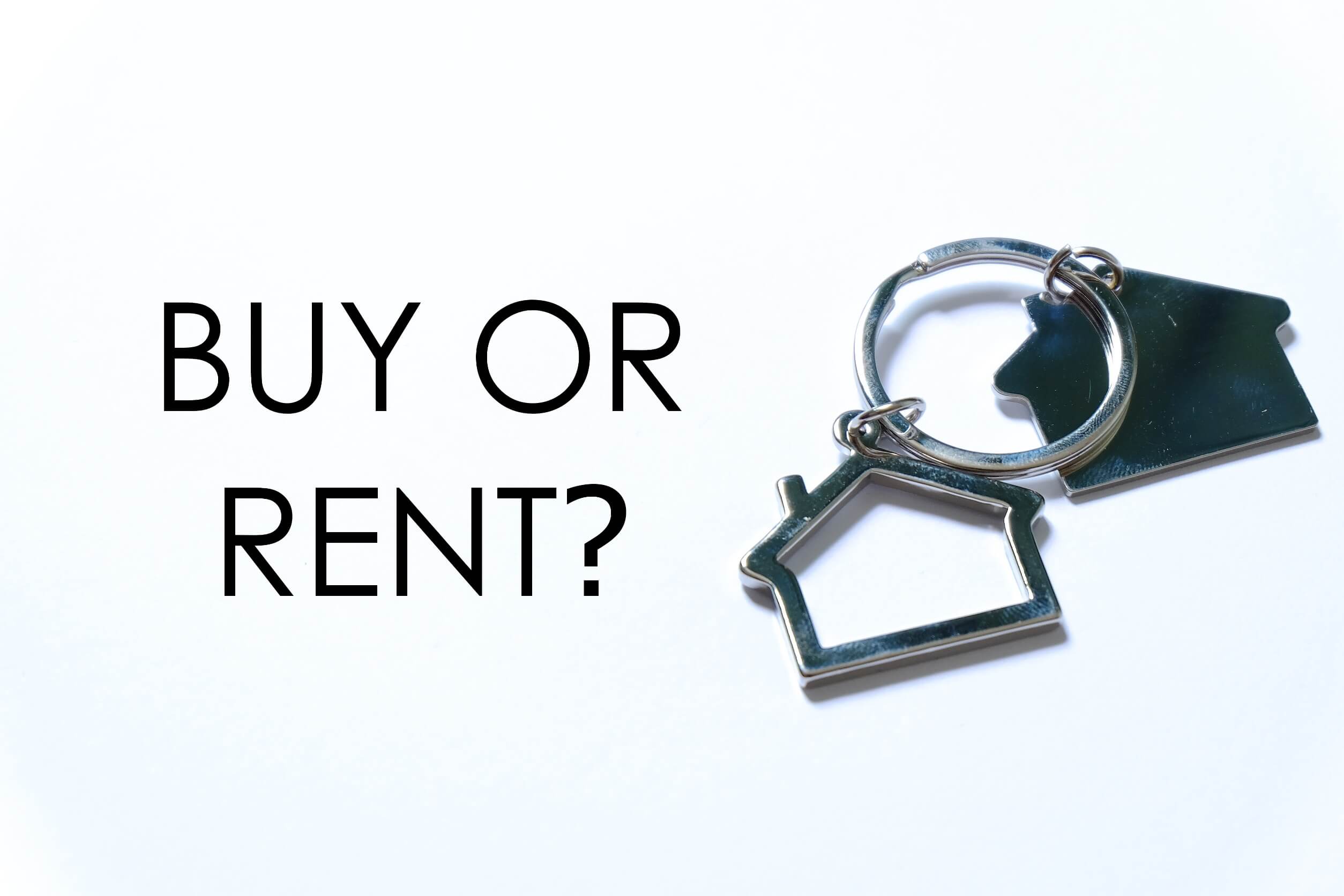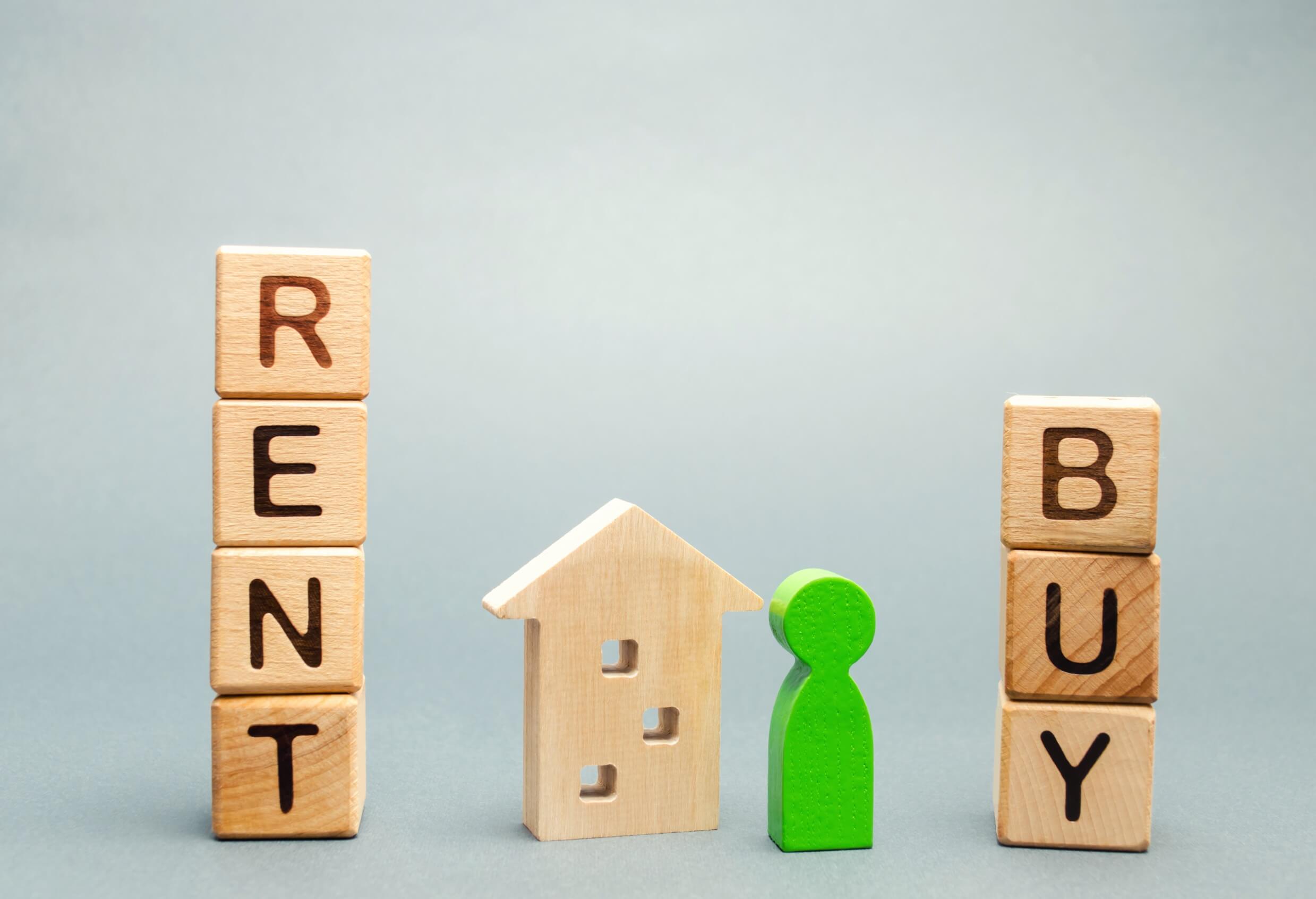- Home
- Buying A Home First Steps
- Buying vs Renting A Home
Buying vs Renting A Home
Why would you want to consider buying vs renting a home? Or why you might want to continue renting vs buying a home?
Everyones’ personal situation is different and the reasons for choosing one over the other are not always simple or based on financial criteria, although that is likely a significant component for most.

The “buying vs renting a home” decision comes down to a personal choice. While there are many potential advantages to buying over renting, it is up to everyone individually to determine if those reasons fit your particular situation.
There is no point in buying a home when it will go against your personal goals, and there is no point in buying a home too soon if the financial stresses are to great.
In this article we will go over some of the reasons why you might want to consider buying over renting, as well as some of the reasons why it might make more sense to continue to rent for the time being.
Reasons For Buying vs Renting A Home
The arguments for buying over renting often hit on more than one category. Essentially it comes down to a question of goals and priorities. Are you in a situation where your longer term goals are tied to a particular area or location?; and can your financial situation can support it?
1) Personal Considerations:
- Longer term stability
- You want to commit to a particular community or lifestyle (buying out in the country for example, or even a particular cultural centre of an urban community)
- Strong desire to customize and build on a place to call home.
2) Financial Considerations:
- Have sufficient savings and cashflow where investing in your own home makes sense over just renting. (You will ideally need a 20% downpayment and ensure the principle, interest and taxes payments do not exceed 36-40% of your total income)
- Prefer to build equity or have a plan to rent out part of the home to reduce the costs of ownership.
** To find out the specifics of determining if you likely have the financial capability, please visit the Can I Afford A House page!
3) Market Considerations:
- Where the cost of rent in a community exceeds the cost of mortgage payments and taxes. (This occurs when interest rates are very low, making the cost of borrowing cheap - 1%-3%)
- Where the real estate market has been undervalued and “buying the dip” makes financial sense for you - eventually cashing in when the market “returns to normal”.
- Where increasing employment and immigration will drive up the value of homes over time and buying early in that cycle allows for the potential to build equity at a faster rate than normal.
** If you are convinced that buying a home is in your plans, click the link for additional information on the Advantages of Buying A Home!

Reasons For Renting vs Buying A Home
The arguments for renting equally touch on more than one factor. Perhaps buying a home is not a short term financial reality for your situation?; or it might also be simply your immediate personal priorities do not make it a prudent choice to put down serious roots yet?
1) Personal Considerations:
- Where your work or career could change in a year or two.
- When you are new to an area or city and it would make sense to spend a couple of years researching which neighbourhoods would suit you.
- When your lifestyle or work involves significant travelling and it would be more challenging to look after something you own.
2) Financial Considerations:
- Where the mortgage payments and property taxes would exceed 40%+ of your total income.
- Where the cost of local taxes or insurance (flood zones for example) make purchasing a higher risk.
- When you have not been able to accumulate sufficient savings to cover a 10%-20% downpayment and closing costs. It might be more financially prudent to focus on ways to increase savings than go for that immediate high-leverage loan option.
** If the financial component is the main concern head on over to the Can I Afford A House page for a deeper dive on where to start that research.
3) Market Considerations:
- During periods of higher inflation is sometimes becomes more economical to rent than deal with rising or unpredictable housing prices and interest rates.
- When the economic stability in a particular area is in decline or questionable.
- When the prices of homes are experiencing rapid increases and resulting in bidding wars. It may make sense to try to understand the economics behind the increases before you buy.

Is Rent To Own An Option?
“Rent to Own” is a type of contract where the selling party agrees to rent the home with an option to buy at the end of an agree period of time (3 years for example).
This type of contract always favours the Seller.
It enables the Seller to get the price they want, and the rent is usually higher than the market rate. They then set aside a portion of the rent to become the “downpayment” portion once a sale is triggered by the renter / buyer.
The renter usually pays all the utilities and expenses as if they were the owners. If the sale is not triggered, the “downpayment” portion of the rent is often forfeited by the renter.
I would not recommend this type of contract, except where the personal circumstances of the buyer / renter out-weigh the risks of the additional expense, and the financial burden is something the buyer / renter can handle.
HOME > Buying A Home First Steps > Buying vs Renting A Home (This page)